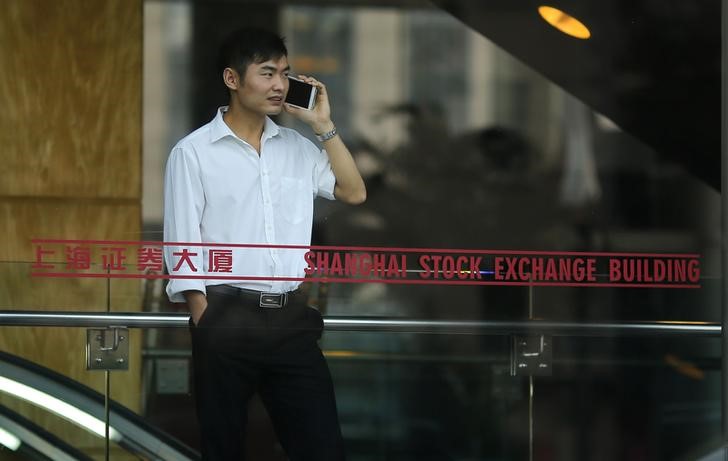By Samuel Shen and Andrew Galbraith
SHANGHAI (Reuters) - Trading in China's equity derivatives has hit a five-year high, with some products seeing record volume, in a sudden comeback for a market considered essential in other major economies but shunned in China following a crash in 2015.
Panic about the economic impact of the coronavirus outbreak and a huge drop in oil prices has sparked extreme market volatility, encouraging investors to find ways of hedging risk with products such as stock index futures and equity options.
Trading in stock index futures has hit its highest since the end of 2015 with nearly $70 billion worth of contracts changing hands each day, while stock option trading has set records with the number of open contracts exceeding 5 million on the Shanghai Stock Exchange.
Futures based on the small-cap CSI 500 index (CICc1) are especially hot, with the daily volume of traded contracts since the market reopened in February following the Lunar New Year holiday more than doubling from the same period a year earlier.
"The entire market is panic everywhere," said Hong Kong-based portfolio manager Yun Xiong at Green Harmony Capital. "This market definitely increased the importance of derivatives in China as hedging tools. We see good growth in this field."
A futures contract allows an investor to buy or sell an asset such as stock at a predetermined price and at a specific time. An options contract gives the investor the right, but not the obligation, to trade an asset at a stated price within a specified period.
Trading in such products, however, has been restricted since the securities regulator partly blamed them for a stock market crash in 2015. Two years later, China's broader financial market deregulation saw those restrictions ease - including loosening trading limits on futures contracts whose prices are derived from stock indexes.
China's stock market is dominated by quick-trading retail investors and so typically experiences big price swings. However, such swings are being exacerbated by uncertainty surrounding the virus, which originated in China where the government closed businesses to slow its spread.
"Emotional" investors are pushing prices "too far in one direction or the other", said Phillip Wool, Managing Director of Rayliant Global Advisors.
For instance, tech board ChiNext (CNT) experienced a 31% swing last month, compared with 19% in U.S. counterpart Nasdaq. Such volatility is encouraging investors to defend against daily swings by hedging spot trading with futures and options.
COMPETITION
The securities regulator has been slowly easing rules in China's derivatives market, weighing what it has said is distrust of speculation purely to make a quick profit, against a desire to attract foreign investors who regard derivatives a normal part of their toolkit to mitigate risk.
At the same time, the market is widely expected to become increasingly important to the competitiveness of local brokerages, who face the inevitable arrival of more experienced foreign finance houses.
Under the Sino-U.S. trade agreement signed in January, foreign brokerages and mutual fund managers can apply to own 100% of their Chinese operations from April 1, from 51% at present. Ownership caps for foreign futures firms were scrapped in January.
Chen Hongting, head of options at trading consultancy AlgoStar, said China was beginning to realize that a vibrant derivatives market could help the real economy by providing much-needed risk-mitigating tools.
"Regulators naturally don't like speculation," said Chen, whose clients include both those trading to hedge risk, and those speculating for swift gains.
"But if some people want to avert risk, there have to be other people willing to take on that risk - and those people are speculators."
